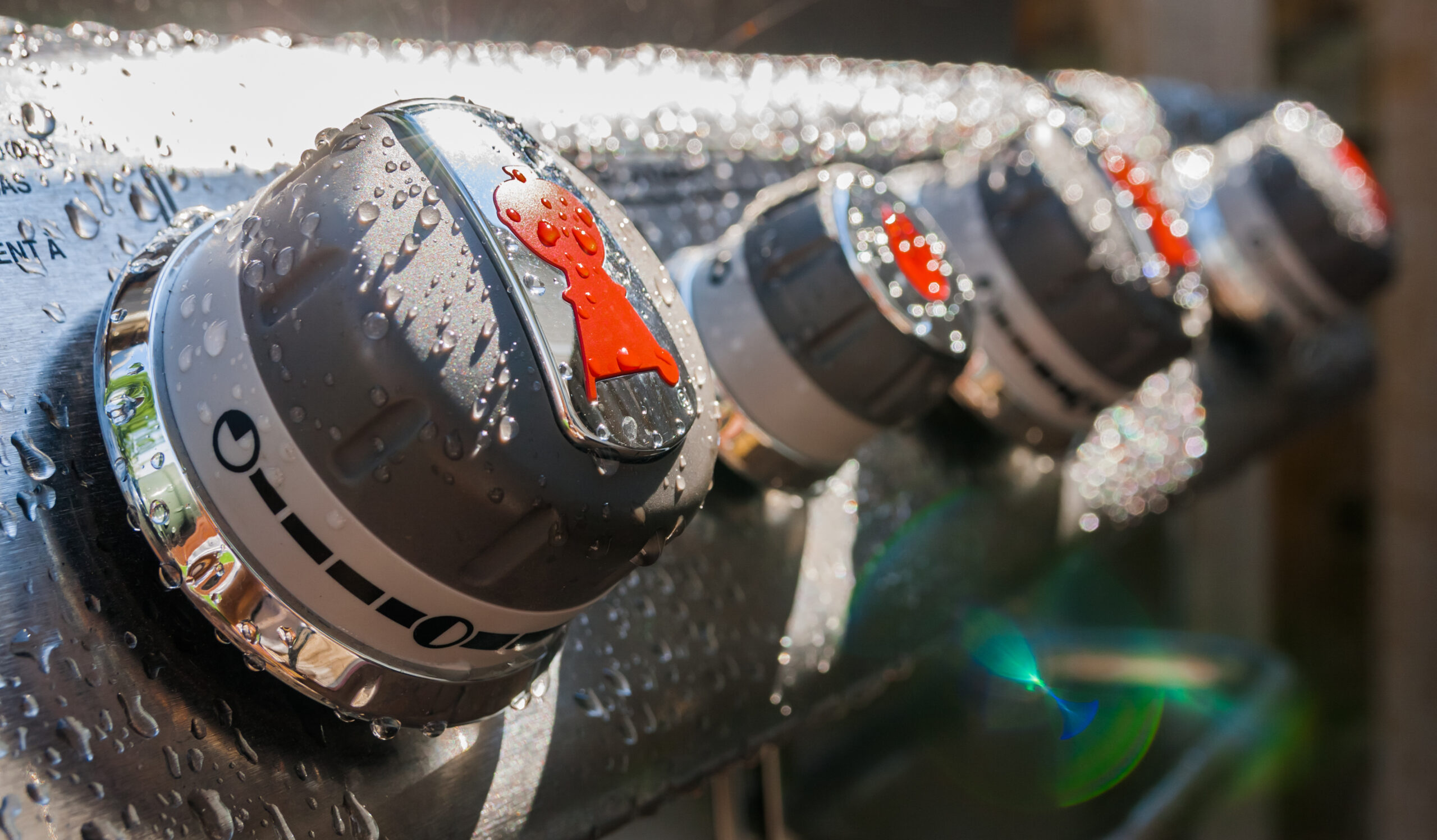So you started up the grill, purchased two pounds of beautiful porterhouse steaks, and have bottles of vino ready to pour, but right as your guests arrived the heavens opened up in a torrential downpour. “What do I do now?” you may ask yourself. Bringing your barbecue inside may seem like a large obstacle to overcome, but with the right tools and mindset, can be accomplished in routine time.
Grilling inside is very, very feasible – but don’t forget, you’re still grilling. Although this may sound trite, many indoor grillers walk away from their pans and return to find burnt meat or even fires. When grilling inside, it’s important to remember that fumes and smoke won’t be carried away with the wind; these fumes and columns of smoke will rise to the ceiling of your kitchen and have the potential to set off fire alarms (which isn’t exactly a good thing while entertaining guests.) Indoor grilling pans can’t drain liquids as well as outdoor grills, so baste your cuts sparingly and be sure to drain any excess liquid from marinated meats. To lessen the amount of smoke produced by your cuts, be sure to trim excess fat off of steaks and chops before putting them into a pan.
You have two main options for indoor grilling – in a grill pan, or on an indoor electric grill. One of the best ways to simulate an outdoor grilling experience while inside is by using an indoor electric grill (such as this one ) As opposed to other indoor grilling techniques, this grill has elevated grates over a heating surface, so the food you cook is closer in taste to that of a grill. Because the heated surface is raised as opposed to in a pan (another common method for indoor grilling) you don’t have to worry about trapped moisture or grease that has the potential to catch on fire. If you don’t have an electric grill and are in a pinch, you can use a grilling pan. The indents in the pan can give cuts of meat that signature grilled “look,” and produce a similar flavor profile. As mentioned before, however, watch out for trapped moisture that can steam your meats as opposed to grilling them. Just be consciences while using a grill pan.
All in all, a rained-out barbecue isn’t the end of the world, but you have to know how to adapt to not being able to use your outdoor grill.

